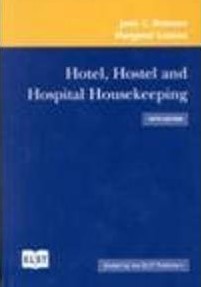Hotel Guest Arrival Procedure
Guest arrival marks a pivotal phase in the hospitality cycle, shaping the guest's overall experience. This section delves into the structured process of guest arrivals, highlighting the importance of creating positive first impressions and managing the process efficiently. From extending a warm welcome to completing essential formalities, every step demonstrates the establishment's service quality and professionalism. Mastering these procedures ensures seamless operations and enhances guest satisfaction, a cornerstone of the hospitality industry.
1. Types of Registers
Recording guest information at the time of arrival is crucial for legal requirements and operational efficiency. Different types of registers or recording systems are employed, based on the size and needs of the property.
Register: A traditional, bound logbook where guest details, such as name, address, arrival and departure dates, and room numbers, are manually recorded. This method is simple and cost-effective but lacks efficiency and security, especially for properties handling high volumes of guests.
Loose-Leaf System: This system uses individual sheets to maintain guest records. It offers greater flexibility, allowing easy updates or removal of records, making it ideal for mid-sized hotels with moderate guest turnover.
Registration Cards: A commonly used method where guests provide key details on cards upon arrival. These cards include personal information, payment methods, and stay duration. They are systematically organized and often digitized for quick and efficient retrieval.
2. Receiving Guests at the Front Office
The front office serves as the initial touchpoint for guests, making it essential to provide a welcoming and efficient reception experience. Key steps in the process include:
Greeting: A warm and professional greeting creates a strong first impression. For example, “Welcome to [Hotel Name]. How may I assist you?” Staff should be polite, well-groomed, and attentive to ensure guests feel valued and appreciated.
Luggage Assistance: Bell attendants or front office staff should promptly assist with the guest’s luggage. Using proper etiquette, such as handling fragile items with care and asking about room preferences, enhances the guest experience.
Understanding Guest Needs: Engaging in courteous conversation to determine the guest’s requirements—such as room preferences, special requests, or dining needs—sets the stage for tailored service.
Directions or Escorting: In larger properties, either guiding guests to the check-in area or providing clear, concise directions adds a level of convenience and thoughtfulness.
Seating and Refreshments: In upscale properties, arranging for comfortable seating and offering welcome drinks or light refreshments demonstrates a touch of luxury and helps guests relax during any waiting time.
Accessibility Arrangements: For guests with special needs, ensuring accommodations like wheelchair assistance or priority service is promptly provided reflects a commitment to inclusivity and guest care.
3. Arrival Procedure for Different Types of Guests
Arrival procedures differ depending on the category of guest. The steps for managing various guest types are outlined below:
Foreign Guests:
Verify the passport and visa in accordance with government regulations.
Complete Form C (required for foreigners staying in India) to ensure compliance with local laws.
Provide multilingual support and assist with currency exchange if needed.
Guests with Confirmed Reservations:
Retrieve the booking details from the reservation system.
Verify the guest’s identity and reservation information.
Present the registration card for the guest’s signature, noting any pre-arranged preferences.
FITs (Free Independent Travelers):
Offer personalized service and flexibility in room selection.
Promote additional services such as guided tours or exclusive packages.
Walk-In Guests:
Check room availability and present suitable options based on the guest’s needs.
Provide a brief explanation of room features, amenities, and pricing.
Collect an advance deposit or secure credit card authorization to confirm the booking.
4. Notification of Guest Arrival
After the guest's arrival, the front office team informs relevant departments to ensure a seamless stay. Key notifications include:
Housekeeping: To confirm that the room is cleaned, prepared, and ready for the guest.
Food and Beverage: To accommodate any specific dining preferences or pre-booked meal plans.
Concierge/Guest Services: To assist with local tours, transportation arrangements, or other special requests.
IT/Technical Team: To address any connectivity needs or set up technical equipment requested by the guest.
5. Advance Payment Procedure
Collecting advance payments is an essential practice for securing reservations and reducing financial risks in the hospitality industry. This procedure ensures clear communication and mutual understanding between the property and the guest. Below is a comprehensive outline of the process:
Explaining Payment Policies
Provide guests with a clear explanation of payment terms, including cancellation and refund policies. This helps guests understand the impact of advance payments, such as non-refundable deposits or fees for late cancellations.
Emphasize the advantages of advance payments, like securing the booking or benefiting from special discounts.
Payment Methods
Cash:
Accept cash payments and promptly issue a detailed receipt to ensure transparency.
Securely store cash and follow proper accounting procedures.
Advise the guest to keep the receipt for future reference.
Credit/Debit Card:
Verify that the card machine is functioning correctly and assist guests if needed during the transaction.
Double-check the transaction to prevent errors or duplicate charges.
For online payments, use secure gateways and send the guest a confirmation via email or SMS.
Bank Transfer:
Frequently used for corporate or group bookings, provide clear bank account details and payment instructions.
Confirm receipt of the payment before the guest’s arrival or check-in to avoid misunderstandings.
Keep records of the transaction for reconciliation and auditing.
Issuing a Receipt
Issue a receipt immediately after receiving the payment.
The receipt should include essential details, such as:
Payment date
Amount received
Method of payment
Booking or service details covered by the payment
Provide the guest with a copy of the receipt while retaining another for internal records.
Deposit Adjustment
During check-out, ensure that the advance payment is accurately reflected in the final bill.
Subtract the advance amount from the total due to calculate the remaining balance.
Clearly indicate the adjustment on the invoice for transparency.
Key Terms
Form C: A document required for registering foreign nationals.
Reservation Confirmation: A documented assurance of the guest’s booking.
Registration Card: A record capturing essential guest details during check-in.
Advance Payment: A partial or full payment collected before or at the time of check-in.
Walk-In Guest: A guest who arrives without a prior booking.
FIT (Free Independent Traveler): An individual traveler booking independently, without a tour operator.
Notification Memo: A communication sent to internal departments regarding guest arrivals or requirements.
www.ehospitalitystudies.com


FRONT OFFICE









